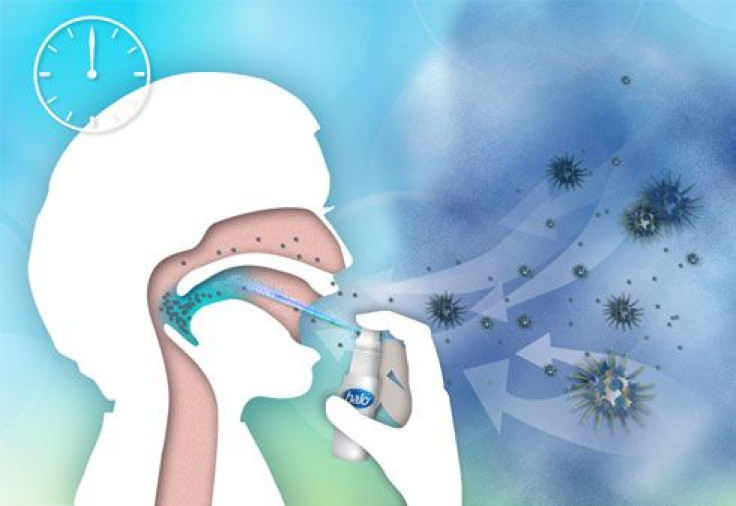Oral Antiseptic May be Able to Kill 99.9% of Airborne Viruses

As the summer winds down and autumn swiftly approaches, health experts warn to take precaution against the flu season.
Precautions may include flu shots or a first-of-its-kind oral antiseptic spray. The Halo Oral Antiseptic has been tested against clinical strains of 2009 H1N1.
Clinical researchers from the University Hospitals Case Medical Center in Cleveland, Ohio, found the antiseptic spray to be 99.9 percent effective in killing airborne viruses that affects the respiratory tract.
Respiratory tract diseases are conditions that affect the air passages including the bronchi and lungs. These conditions can range from acute to severe infections such as pneumonia and bronchitis. The Halo oral antiseptic spray would help combat such conditions.
According to lead study author Dr. Frank Esper the antiseptic can protect individuals from germs and diseases such as influenza and rhinovirus. Scientists used glycerine and xanthan gum as a microbial barrier alongside cetylpyridinium chloride (CPC) as a broad-spectrum anti-infective agent to combat respiratory infections.
Dr. Esper found that the glycerine and xanthan gum prevents viruses from entering an individual's immune system and the CPC destroys the germs once they are trapped.
The study demonstrates that Halo can protect against, and reduce, diseases that may be caused by severe epidemic, sporadic or pandemic respiratory viral infections. Halo can also assist those at risk for respiratory illnesses such as immune-compromised patients suffering from chronic lung disease and military personnel.
Other research conducted by Mahmoud Ghannoum, PhD, of UH Case Medical Center, showed Halo's effectiveness against disease-causing pathogenic viruses.
Additionally, preliminary data from the study demonstrates that Halo destroys 11 clinical strains of whopping cough. Results demonstrated that if an individual uses three sprays of Halo, it destroys airborne viruses breathed in for up to six hours, even while consuming food or beverages.
This study was presented in San Francisco at the Interscience Conference on Antimicrobial Agents and Chemotherapy (ICAAC).



























